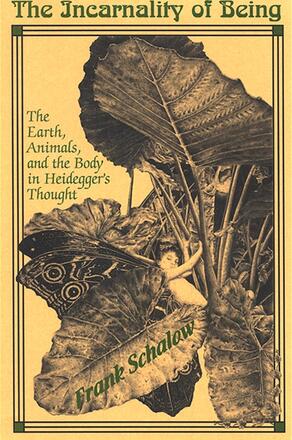
The Incarnality of Being
The Earth, Animals, and the Body in Heidegger's Thought
Alternative formats available from:
A groundbreaking exploration of Heidegger and embodiment, from which a radical ethical perspective emerges.
Description
The Incarnality of Being addresses Martin Heidegger's tendency to neglect the problem of the body, an omission that is further reflected in the field of Heidegger scholarship. By addressing the corporeal dimension of human existence, author Frank Schalow uncovers Heidegger's concern for the materiality of the world. This allows for the ecological implications of Heidegger's thought to emerge, specifically, the kinship between humans and animals and the mutual interest each has for preserving the environment and the earth. By advancing the theme of the "incarnality of being," Schalow brings Heidegger's thinking to bear on various provocative questions concerning contemporary philosophy: sexuality, the intersection of human and animal life, the precarious future of the earth we inhabit, and the significance that reclaiming our embodiment has upon ethics and politics.
Frank Schalow is Associate Professor of Philosophy at the University of New Orleans. He is the author of many books, including The Renewal of the Heidegger-Kant Dialogue: Action, Thought, and Responsibility, also published by SUNY Press, and Heidegger and the Quest for the Sacred: From Thought to the Sanctuary of Faith.